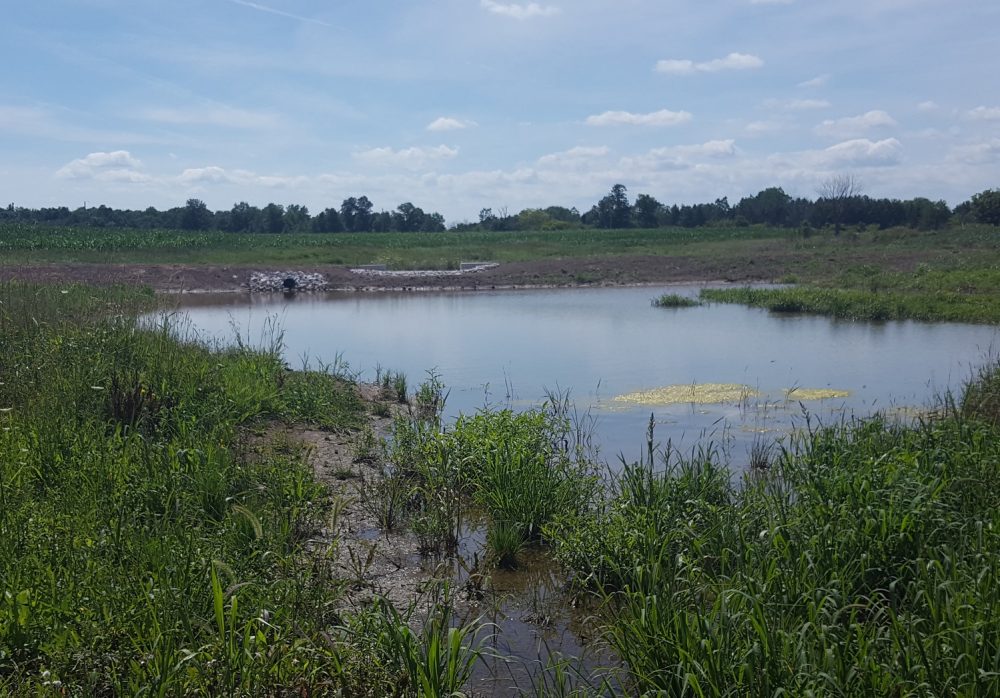Ducks Unlimited Canada (DUC) has worked with Melbourne, Ontario to implement improved water quality management through wetlands to hold and filter water from the surrounding farm fields at the site of a new municipal drain.
The Municipality of Southwest Middlesex, Ontario NativeScape, and DUC are capturing water in an engineered wetland from more than 80 hectares of tiled farmland, reducing excess nutrients that reach the Thames River and eventually Lake Erie, which will help mitigate toxic algal blooms.
“We’re always seeking ways to manage water without affecting other land uses, like agriculture,” said Darrell Randell, conservation specialist for DUC. “There are no adverse impacts here to upstream landowners and many benefits to the river and wildlife.”
DUC and Ontario NativeScape worked with the municipality, the drainage engineer, and the landowner to create three ponds that retain water at the drain’s outlet. Fast-flowing farm drainage may carry phosphorus and other nutrients, and the wetlands will filter them.
“I’m happy to see innovative partnerships like this one, which will help improve water quality in the local watershed,” said Monte McNaughton, Ontario Minister of Infrastructure and MPP for Lambton-Kent-Middlesex. “Protecting our natural infrastructure will benefit the health of our people and surrounding wildlife in Southwestern Ontario, which is good news for everyone.”
The wetland functions as natural infrastructure to complement the municipal drain. Wetlands contribute to water and air quality, slow floodwaters, and provide shelter and food for birds and other wildlife.
DUC targets wetlands for restoration near municipal drains in southwestern Ontario, working hand-in-hand with municipalities and landowners. Municipal drains—regulated under the Drainage Act—are a substantial feature of rural infrastructure. In many ways, they act as tributaries to convey water to rivers and then downstream to lakes, including Lake Erie.
“Southwest Middlesex is excited to see the Drainage Act used as a tool to promote environmental enhancements for healthy watersheds,” said Elizabeth Cummings, utilities/drainage superintendent for Southwest Middlesex. “We were pleased to assist in forming the partnership between landowners and the agencies for this project. We look forward to being a part of more projects of this nature in the future.”
“Wetlands are critical in the process of improving water quality,” said Lindsay Buchanan, Ontario NativeScape’s private land manager. “There are numerous opportunities to implement projects like the wetland at the Keet Drain that use innovative approaches to restore formerly wet areas adjacent to rivers, creeks and agricultural drains.”
The four-acre (1.6-hectare) wetland went to work right away following construction, retaining water up to the spillway in less than two weeks, even in this past summer’s very dry conditions.
“Without the new dams at the municipal drain, that water would have flowed straight to the Thames River,” said Randell.









